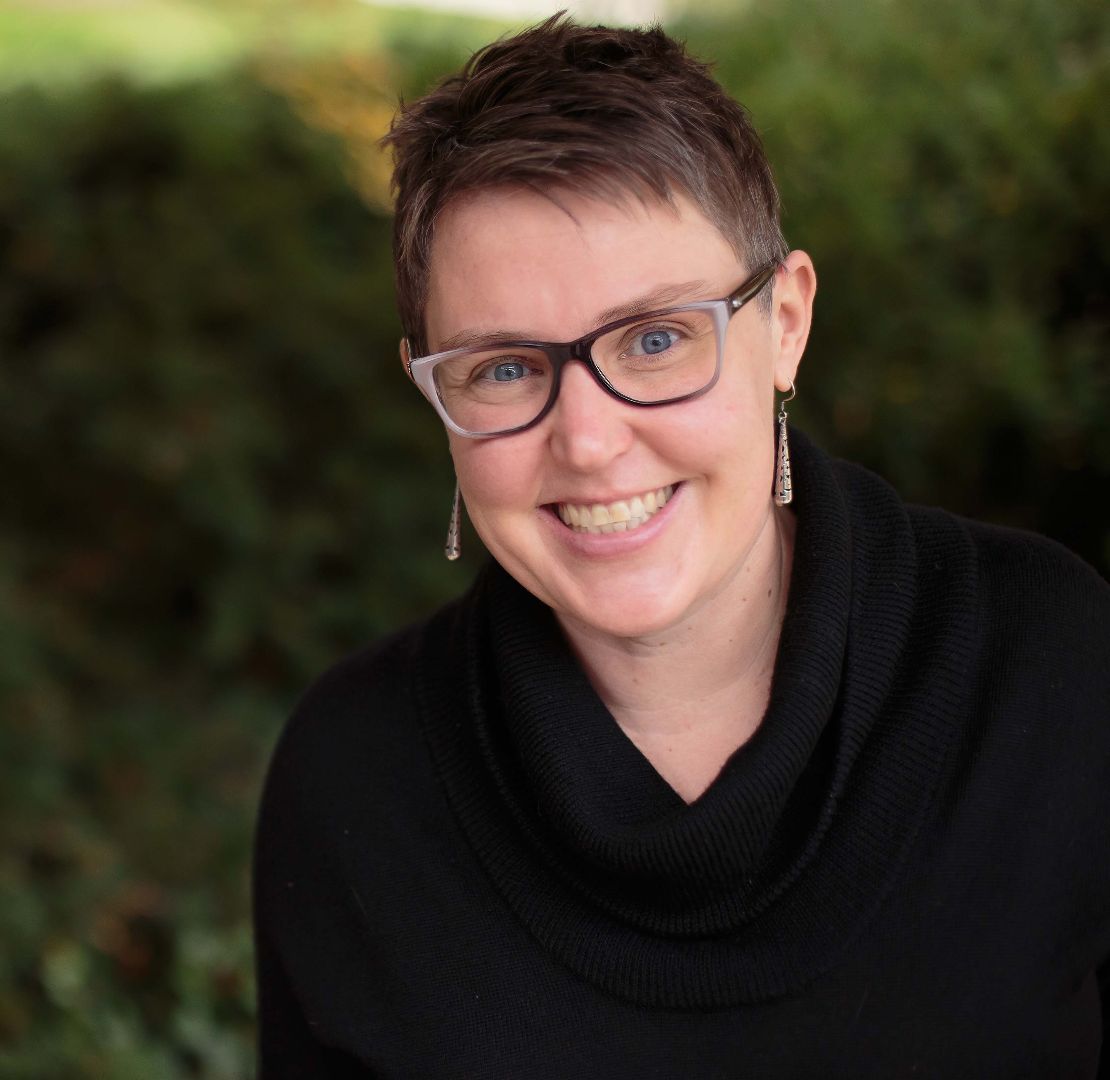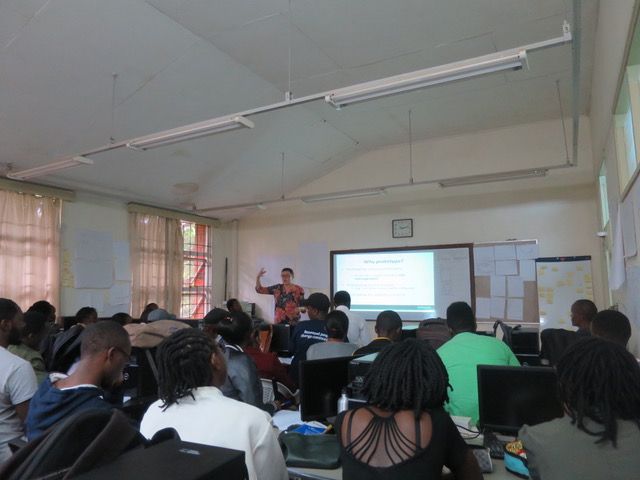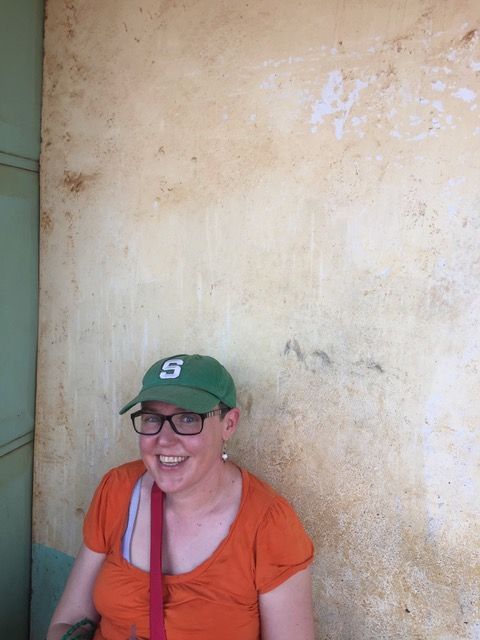Susan Wyche • Associate Professor, Department of Media and Information, College of Communication Arts & Sciences

In her role as associate professor in the Department of Media and Information, Susan Wyche contributes to human-computer interaction (HCI) and information communication technology and development (ICTD)—interdisciplinary fields focused on understanding and designing technology. Her research contributions include novel findings about mobile phone and Facebook use in Africa and practical insights regarding their implications for technology design.
As the 2022 John K. Hudzik Emerging Leader in Advancing International Studies and Programs Award recipient, Wyche is certainly making a significant impact on the advancement of international scholarship.
Wyche is interested in developing an understanding of technology use in sub-Saharan Africa that is grounded in people’s experiences. Her research has examined mobile phone, social media, and hand hoe use in this context, primarily in Kenya. She has conducted fieldwork in the country since 2007. Wyche also has a courtesy appointment in MSU’s African Studies Center.
Wyche's research is funded by awards from Google, Facebook, the United States Agency for International Development (USAID) and the National Institutes of Health (NIH). She is a 2015 recipient of a National Science Foundation (NSF) CAREER Award.
Wyche earned a Ph.D. in Human-Centered Computing from the Georgia Institute of Technology, a Master of Science from Cornell University, and an undergraduate degree in industrial design from Carnegie Mellon University.
I have an undergraduate degree in industrial design, so I learned the process of how to design mass-produced products. As my career progressed, I became more interested in the research side of product design; that is, user research. This led me to pursue a master’s degree and then a Ph.D. Although the contexts and types of technologies have varied—understanding people and how they interact with technology (not just information and communication ones)—has been a consistent feature of my career.

I work in a research field that broadly examines how to design technology, a field called human-computer interaction (HCI). Within this field there is a tremendous amount of enthusiasm surrounding technology, especially mobile phones, mostly because access to them has significantly grown in Africa over the last two decades. Technology companies, NGOs, and governments have invested significant resources into developing mobile apps and services to address long-standing socioeconomic problems in African countries (e.g., related to increasing access to health and educational information). However, a benefit of using a human-centered approach is that it has allowed me to understand (some of) the everyday realities that underlie people's interactions with mobile phones and to ask hard questions about whether these apps actually address the problems they are intended to.
What I have learned is that most people don't use these apps, because the people who designed them do not fully understand the context where these devices are used. For example, just keeping a mobile phone battery charged is challenging for many people living in rural parts of Africa where access to electricity can be inconsistent or non-existent. How can technologists expect people to rely on a device for access to pertinent information, when some struggle just to keep its battery charged?
I first traveled to Kenya while conducting my dissertation research at Georgia Tech and kept returning. I have been conducting fieldwork in the country for more than a decade.
I primarily conduct research in Western Kenya. This has proven to be a useful site for understanding the opportunities and challenges that have accompanied greater access to mobile phones, social media, and so on.

I wish that I had learned to speak Kiswahili earlier in my career. Language acquisition was not emphasized during my academic training. I am grateful to be at MSU, where I have 1) learned to deeply appreciate the importance of learning how to speak another language; and 2) where I have access to one of— if not the best—Kiswahili instructors in the world; that is, Jonathon Choti, Ph.D.
My ability to collaborate with faculty and students from different disciplines—geography, agricultural economics, linguistics, etc. at MSU.
Breaking down the disciplinary silos that exist at MSU and in academia more generally. My hope is that my research will provide an example of how to conduct highly interdisciplinary research that is aligned with this university's strengths.
My research benefits from involving African students. I have recruited, and provided funding for, such students at MSU. MSU has a long tradition of educating African students; I am grateful that I can contribute to these efforts.
I deeply appreciate being affiliated with an institution where there are so many scholars who have years of experience conducting research throughout Africa. This is uncommon, and what I like best about the university. I am a better researcher, and person, because I can learn from these past and present Global Spartans: Jennifer Olson, Ph.D, Carol Myers-Scotton, Ph.D, Wenda Bauchspies, Ph.D, Chantal Tetreult, Ph.D, Kimberly Chung, Ph.D, and Jamie Monson, Ph.D.
Nominated by: Johannes M. Bauer, Professor, Department of Media and Information; Director, James H. and Mary B. Quello Center, College of Communication Arts & Sciences
The John K. Hudzik Emerging Leader in Advancing International Studies and Programs Award recognizes an early-career faculty member who is making a significant impact on the advancement of international scholarship, teaching, and/or public service and outreach at Michigan State University.